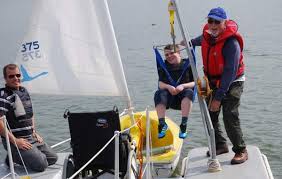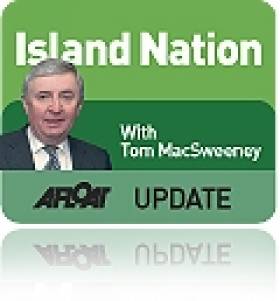Displaying items by tag: Tom O'Mahony
Difficult Waters for Irish Sailing, Just 17,000 Registered Leisure Sailors in Ireland
#irishsailing – There are just 17,000 registered leisure sailors in Ireland at present. There has been a decline in sailing, the level of activity has weakened, clubs are losing membership and several marinas have space available for the first time.
The only official participation figure available is for those 17,000 members of clubs registered with the Irish Sailing Association. There are many more sailors who own boats and use them outside of the club structures, so the actual participation levels could be two or three times that number. But there is no doubt about the decline in activity in the sport. The effects of the economic recession, people having less disposable income, loss of jobs, emigration, have all had their effects.
Brian Craig, one of the Directors of the ISA discusses the challenges facing the sport in a frank and direct interview on the current edition of THIS ISLAND NATION, the niche maritime radio programme, which you can hear here. The interview ranges across the still-present perception of the sport as 'elitist' and the methods needed to change this and to increase involvement in the sport.
"There is still a strong core foundation to the sport," Brian Craig says in the interview which discusses the Strategic Plan the Association has drawn up and which has been considered at meetings of ISA members around the country.

Brian Craig
The plan will be put before the ISA annual general meeting in Portlaoise on March 28 for adoption.
GOVERNMENT THINKS THERE IS AN IRISH LANDBRIDGE!
"We are a funny country. We are surrounded by water. We have a Government that thinks there is a landbridge somewhere, but they don't know where it is."
That was the comment of former seafarer Tom O'Mahony when he spoke to the programme at the annual Remembrance Ceremony for those lost at sea in the town of Youghal on the East Cork coastline. It is a coastal town with a great schooner tradition and memories of seafarers who ranged from the River Blackwater onto the world's oceans in various types of vessels. It is also where the programme is compiled, edited, recorded and transmitted every Monday fortnight at 6.30 p.m. and later each fortnight on Near FM in Dublin, Dundalk FM, Dublin South FM and Raidio Corca Baiscinn in County Clare as well as on this website.
Tom O'Mahony said there was a lack of maritime awareness at Government level and recalled the closure of Irish Shipping and the manner in which ships and crews were stranded overseas and men later left without pensions. "And that was company in which seafarers had gone to sea in ships that would not now pass maritime safety requirements."

DISABLED SAILING
The RNLI describes a very courageous disabled sailor on the programme in contrast to the decision of the Paralympics Committee to discard sailing from its programme.
NO PLACE FOR BEING POSH OR A FIGUREHEAD
Also discussed on THIS ISLAND NATION is the use of nautical descriptions in everyday language, such as 'posh,' being a 'figurehead' and 'flogging a dead horse."





























































